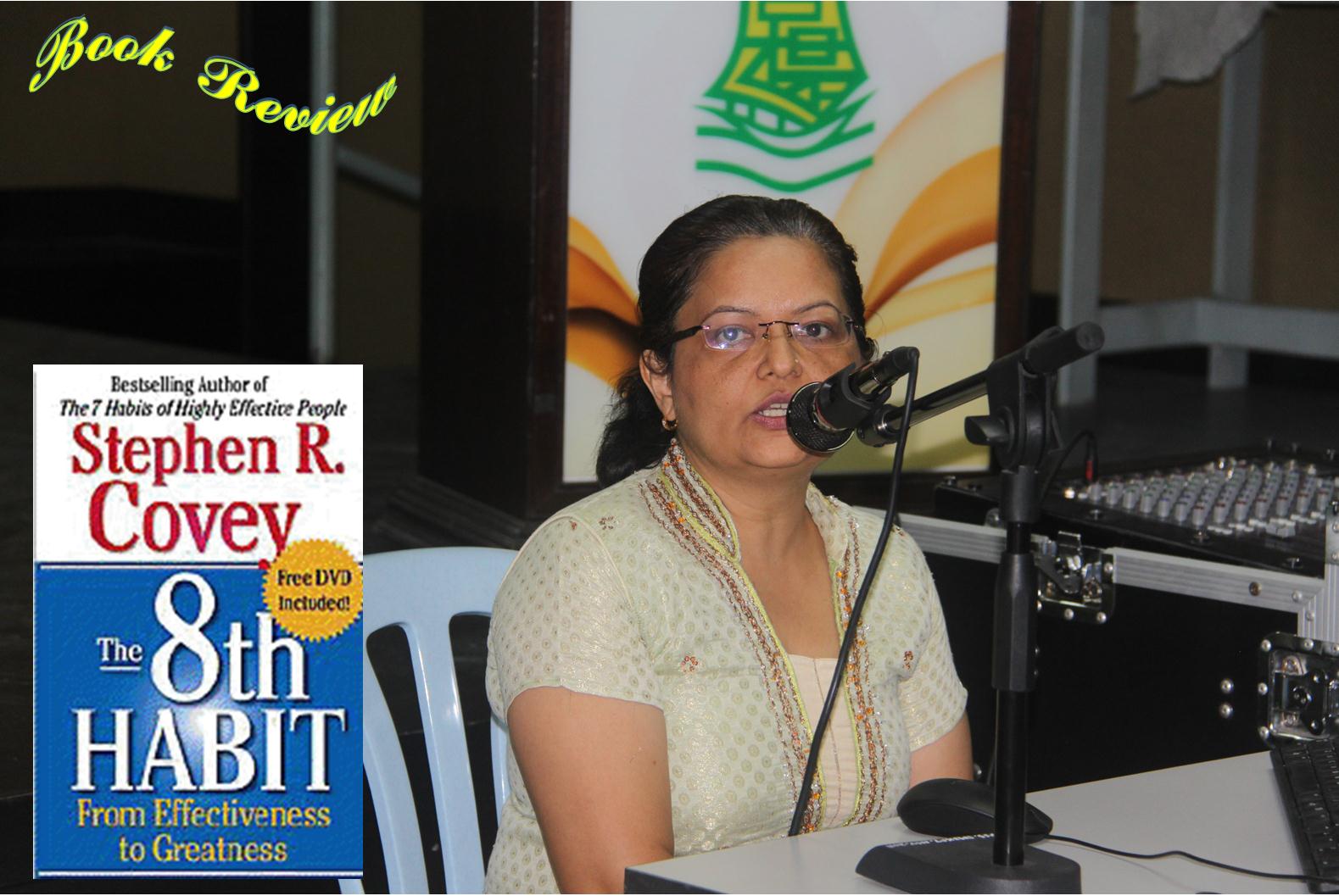Pembentangan Ulasan Buku
|
|
Pembentangan Ulasan Buku Tarikh : 3 Nov 2012
12 Steps to a Better Memory by Carol Turkington Presented by Pn. Veni
The first step towards having a better memory is to understand how memory works. Memory is really not so much a retrieval as it is an active construction. If you say that you know something, you're really speaking metaphorically -- you're assuming that you can construct the answer. Contrary to beliefs in past centuries, memories do not exist as fully formed bits of flotsam in your brain. This book gives a clear picture of : •a) Where Is Memory? •b) How Memories Begin •c) How Memories Are Recorded •d) How Memories Are Retrieved •e) The Three Stages of Memory Formation i. Registration ii. Retention iii. Recall •f) Memory Lapses •g) IQ and Memory •h) Sleep Learning •i) Memory Improvement Techniques
The 8th Habit: From Effectiveness to Greatness by Stephen R. Covey Presented by Pn. Kalpna
The 8th Habit: From Effectiveness to Greatness is a book written by Stephen R. Covey, published in 2004. It is a sequel to The Seven Habits of Highly Effective People, first published in 1989. The eighth habit is to "Find your voice and inspire others to find theirs". The book talks of "5 Cancerous Behaviors" that inhibit people's greatness, some of which appears to have been "borrowed" from Dale Carnegie's How to Win Friends and Influence People: •1) Criticism •2) Complaining •3) Comparing •4) Competing •5) Contending
The Tipping Point: How Little Things Can Make a Big Difference by Malcolm Gladwell Presented by Mr. Kunasegeran
"The Tipping Point" is a book about change. In particular, it's a book that presents a new way of understanding why change so often happens as quickly and as unexpectedly as it does. For example, why do teens smoke in greater and greater numbers, when every single person in the country knows that cigarettes kill? Why is word-of-mouth so powerful? What makes TV shows like Sesame Street so good at teaching kids how to read? Ideas, behaviour, messages and products sometimes behave just like outbreaks of infectious disease. They are social epidemics. The Tipping Point is an examination of the social epidemics that surround us. Because epidemics behave in a very unusual and counterintuitive way. Think, for a moment, about an epidemic of measles in a kindergarten class. One child brings in the virus. It spreads to every other child in the class in a matter of days. And then, within a week or so, it completely dies out and none of the children will ever get measles again. That's typical behaviour for epidemics: they can blow up and then die out really quickly, and even the smallest change -- like one child with a virus -- can get them started. It is also the way that change often happens in the rest of the world. Things can happen all at once, and little changes can make a huge difference. That's a little bit counterintuitive. As human beings, we always expect everyday change to happen slowly and steadily, and for there to be some relationship between cause and effect. And when there isn't, we're surprised. Don't be surprised. This is the way social epidemics work.
|



|
|
|